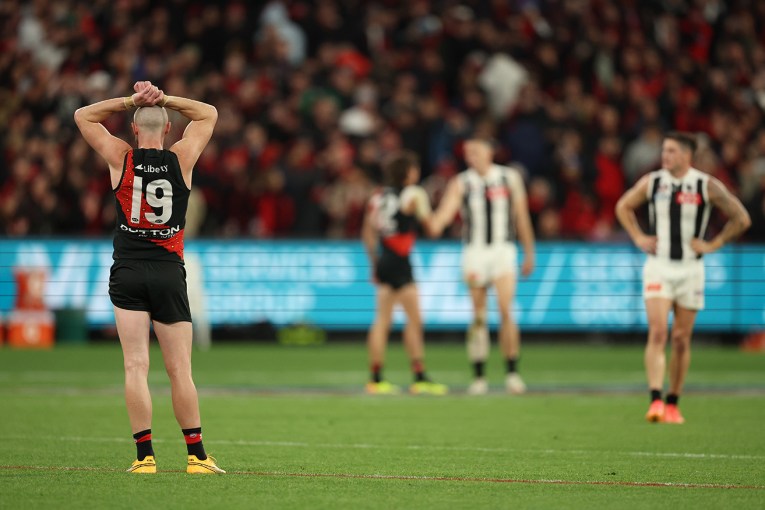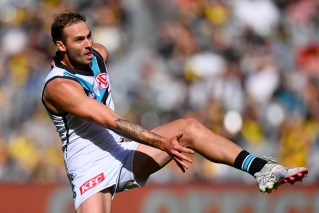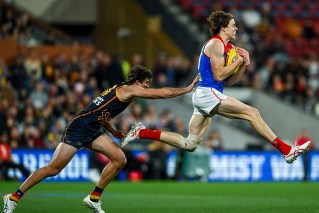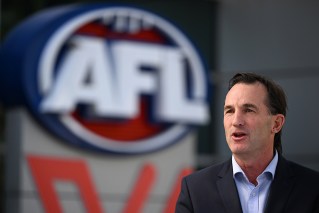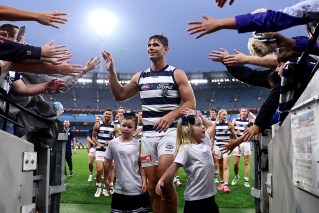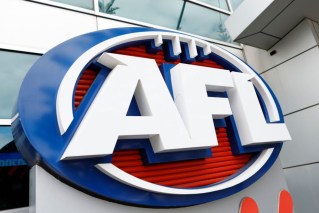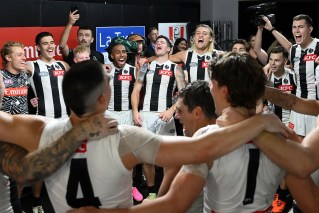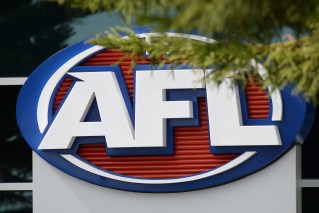Beau Waters forced to clear out his hurt locker

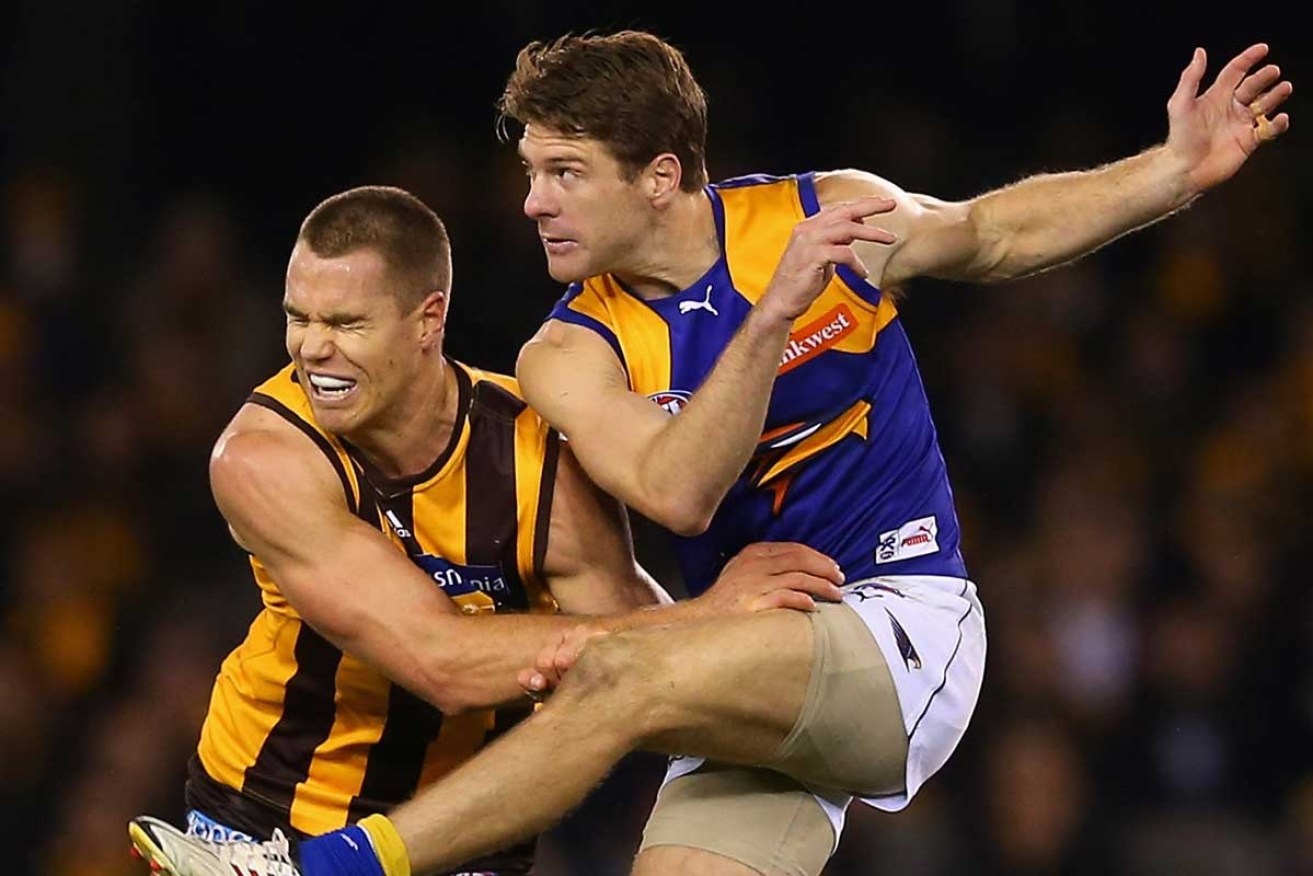
Injury was never far from Beau Waters, whether he was the inflictor or the afflicted.
The first evidence I encountered that Waters may have been a tad unbalanced came in 2006, in the dying stages of a game against the Brisbane Lions at Subiaco Oval.
With his Eagles up by 50-odd points and the clock winding down, Waters chose to run past the footy in an attempt to inflict permanent neurological damage on Robert Copeland.
• All hail Jono Brown, the anti-buddy
• Why pre-season injuries are soul destroying
He was the last of the AFL’s Mohicans, a direct descendant of men like Byron Pickett, Glenn Archer and John Worsfold.
Men who, as little boys, didn’t dream of soaring marks or after-the-siren goals – but rather the dazed and confused look on opponents’ faces after they’d been ironed out by hips and shoulders.
Even his name was a throwback. They don’t make Byrons or Beaus anymore.
Medicos are grateful.
Waters at least was honest about his penchant for pain, his hankering for hurt.
Like this assessment of a hit on Steve Salopek, in the white-hot atmosphere of a 2007 qualifying final.
“Being the team man I am, Steven was playing quite well and I thought I might try and send him into another parallel universe,” Waters said with good cheer.
“Hit him flush down the middle, bit of a meat axe. And that was it.”
His hit on Tom Harley triggered the Eagles’ famous comeback victory in Geelong in 2006.
It didn’t matter how big they were, Waters would line them up – as well as Harley, he counts Jonathan Brown and Lance ‘Buddy’ Franklin among his victims (the latter the recipient of a crude retributory gang tackle rather than a bump).
Waters was the last truly great exponent of the hip and shoulder. His 2010 shepherd on Leigh Adams was perfection, as was his hit on Melbourne’s Jack Grimes a couple of years later.
Neither incident was deemed worthy of suspension, at a time when the game was wrestling with the bump and head-high contact.

Jake Melksham prepares to be Beau-d. Photo: Getty
But Waters had plenty of courage too. He was unlucky not to win a Norm Smith medal in 2006, when he threw his body into every contest, repeatedly holding off the hard-charging Swans.
The night Barry Hall knocked Brent Staker into next week at ANZ Stadium, the only Eagle to register any disapproval whatsoever – outweighed by a good 15kg – was Beau Waters.
In 2011 he was almost vivisected by Chris Mayne in a marking contest, yet bounced straight back into battle.
And the injuries…
He lost the entire 2005, 2009 and 2014 seasons, leaving him with just 120 games since his 2004 debut.
He was struck down by osteitis pubis early on. He once damaged a posterior cruciate ligament after being hit by a taxi. The man has had two elbow reconstructions.
He pulled up with a severe foot injury in a final against North Melbourne in 2012, and the next season it was his shoulder.
It’s fitting that it was his shoulder that finally brought the curtain down, given how many times it has put lights out.
He underwent surgery on the joint in 2013, and was beset by complications that led to his eventual retirement at 28.
“I’ve put a few surgeons’ children through college,” Waters said on Thursday.
“I’m still beeping through airports.”
Finally, it should be pointed out he could play a bit too.
His disposal was a lucky dip, but it got better over the journey.
As mentioned, his 26-possession game in the 2006 Grand Final was heroic, and he was named on a half-back flank in the 2012 All Australian squad.
Beau Waters was a handy footballer, but he was much more than that to the West Coast Eagles.
He was a heart and soul player.
He was one of those rare birds who made the players around him better because of his courage and hunger for the contest. The club will be poorer without him.
